The Team
In preparation for this development award we have assembled a team of computer and data scientists, statisticians, epidemiologists and clinicians with skills and interests in data analysis and interpretation, to address how to apply artificial intelligence (AI) methodology to develop new insights into the detection and prevention of multimorbid conditions.
By establishing a group of experts in clinical medicine, biological sciences, epidemiology, computing sciences and statistics to bring a focus on inflammatory drivers of comorbidity, we expect this development work to demonstrate the feasibility of novel AI technologies to identify inflammation driven clustering of patient disease trajectories over a long time horizon.
Epidemiology and Clinical Medicine

Prof. Alex MacGregor
Epidemiologist (NMS, UEA)Professor of Genetic Epidemiology, Norwich Medical School, University of East Anglia
Email: a.macgregor@uea.ac.uk
Professor of Genetic Epidemiology at UEA. He is a clinical rheumatologist with a research career that has focused on the epidemiology of chronic rheumatic diseases both from the perspective of aetiology and health services research. PI for the Norfolk Arthritis Register. Close involvement with a number of national data projects, including the National Joint Register, CPRD, ELSA and UK Biobank.

Prof. Chris Fox
Clinical Researcher (UoE, Psychiatry)Prof. George Christopher Fox Clinical Professor, Exeter Medical School University of Exeter/Honorary Clinical Professor UEA
Email: christopher.fox@exeter.ac.uk
Director of one of 14 NIHR health technology research centres theme sustainable health care technology/AI. Leads multiple NIHR programmes in co-morbidity intervention development. Current research programmes SPLENDID/ TIMES/SLEEPXACT/ CARECOACH/ DISCOVERY/LEND/COBALT/REACTIVE. Leads NIHR national brain health connect plus network on lifestyle AI modifiable risk factors. Expertise in applying data to clinical problems and working with AI to develop new clinical assessment applications. Mental health lead for MRC Gemini multimorbidity project. Experience of working with CPRD, Eclipse and large clinical trial data sets.

Dr Charlotte Davies
Senior Research FellowCharlotte is a Senior Research Fellow on the inflAIM study. She has a background as an academic health economist working on large national datasets to explore issues related to the market for medical devices, clinical decision making and cost effectiveness analysis. Charlotte has also worked in the NHS as a clinician and project manager, and has experience of working in the private sector in health services research.
Charlotte’s research interests include management of large data-sets, health policy, the intersection of inflammation and MLTC, clinical decision making and the markets for healthcare.
Nutrition, Intersectionality and Public Health

Prof. Ailsa Welch
Professor of Nutritional Epidemiology, Norwich Medical School, University of East Anglia
Email: a.welch@uea.ac.uk
Professor of Nutritional Epidemiology, UEA. My research interests focus on the effects of nutrition on aging and understanding the protective factors in diet for musculoskeletal health: sarcopenia, osteoporosis, fracture risk and frailty. The role of micronutrients and diet quality (dietary patterns, fatty acids, protein & acid-base load) on musculoskeletal health and aging form a large part of my work. I am also working on developing newer ways of identifying malnutrition and sarcopenia by using combinations of factors already held in large clinical databases. I led development of dietary assessment methods for the European Prospective Investigations into Cancer and Nutrition for the UK between 1993 & 2007. I am a State Registered Dietitian.
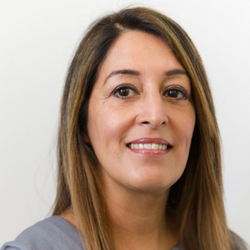
Prof. Basma Ellahi
Professor of Public Health Nutrition at the University of Chester
Email: b.ellahi@chester.ac.uk
Basma has a long standing interest in the diet and health of ethnic minority groups in the UK with particular focus on South Asian and African groups. She is Co-investigator on a UKRI Funded Project TANGERINE (nuTritional heAlth aNd aGeing in oldER ethnIc miNoritiEs) and is particualty interested in ensuring the inclusion and applicability of diverse ethnic groups in the in the inflAIM project and the data sets used.

Prof. Wendy Wills
Professor of Food and Public HealthPro-Vice Chancellor (Research and Enterprise), University of Herfordshire
Email: w.j.wills@herts.ac.uk
Wendy is Pro Vice-Chancellor (Research and Enterprise) at the University of Hertfordshire and became the Director of the NIHR Applied Research Collaboration (ARC) for the East of England in October 2022, having previously led their Prevention and Early Detection in Health and Social Care (PEDHSC) theme. Wendy is a public health nutritionist, and her own research focuses on the socio-economic determinants of health and wellbeing particularly in relation to obesity, food practices and malnutrition; she has a particular interest in how inequalities are experienced by different population groups.

Dr. Maria Traka
Deputy Head of Food & Nutrition-National Bioscience Research Infrastructure (F&N-NBRI)
Group Leader in Food & Health and Co-Director Food Safety Research Network, Quadram Institute Bioscience, Norwich
Email: maria.traka@quadram.ac.uk
Dr Maria Traka is the Deputy Head of Food & Nutrition-National Bioscience Research Infrastructure. She has an active interest in personalised nutrition, prevention of Non-Communicable Diseases, and the importance of the microbiome in modulating response to complex diets.
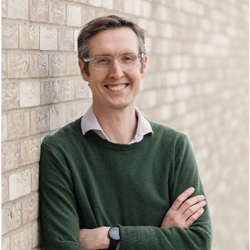
Dr. John Ford
Senior Clinical Lecturer in Health Equity, Queen Mary, University of London and Director of the Health Equity Evidence Centre
Email: j.a.ford@qmul.ac.uk
Academic public health doctor working at the interface of policy and evidence with expertise in health and care inequalities. He leads the Health Equity Evidence Centre, a centre that uses machine learning to generate living evidence maps of what works to address inequalities in primary care.

Prof. Caitlin Notley
Professor of Addiction SciencesDirector, Lifespan Health Research Centre, University of East Anglia
Email: c.notley@uea.ac.uk
Caitlin Notley is Director of the Lifespan Health Research Centre at the University of East Anglia (UEA), with a multidisciplinary focus on health and wellbeing across the life course. She also co-leads the Addiction Research Group, and was previous Director of the UEA ‘Citizens Academy’. As a social scientist, she has wide ranging research expertise in applied mixed methods, with patient and public involvement being at the heart of all of her research. Her particular areas of expertise are tobacco smoking cessation, relapse prevention and harm reduction approaches, focused on vulnerable populations. Her research is funded by CRUK, the MRC and the NIHR.

Magdalena Brandner
MSc, RDPostgraduate Researcher, EDESIA PhD Programme , University of East Anglia, Quadram Institute Bioscience
Email: m.brandner-pye@uea.ac.uk, magdalena.brandner@quadram.ac.uk
Magdalena's PhD research is funded by the Wellcome Trust. Her topic spans plants in our diets, inflammation and the development of multiple long-term conditions.

Jamie Scott
Postgraduate Researcher, EDESIA PhD Programme , University of East Anglia, Quadram Institute BioscienceJamie Scott is a PhD candidate in the ‘EDESIA: Plants, Food and Health’ PhD programme at the University of East Anglia, Norwich, UK. She is interested in the role of dietary components and dietary patterns in maintaining skeletal muscle health during ageing, and more broadly in how nutrition impacts overall health and disease risk. Jamie completed a BSc in Nutrition in 2019 and an MSc in Human Nutrition in 2020, both with distinction. She received the Drummond Prize for Human Nutrition from the University of Aberdeen School of Medicine, Medical Sciences and Nutrition in 2020, and was awarded the student prize for best poster presentation at the Nutrition Society Summer Conference in 2022.

Dr Katherine Bradbury
Health Psychologist, Behavioural ScientistDr Bradbury leads work in behavioural science across a £30million research portfolio. She is an expert in developing and evaluating behaviour change interventions and is the Digital Health lead for NIHR ARC Wessex. Here she is leading Phase 2 of INFLAIM which aims to develop an intervention to prevent people developing multiple long term conditions.
Statistics

Prof. Elena Kulinskaya
Professor in Statistics (Aviva Chair in Statistics), School Of Computing Sciences, University of East Anglia
Email: e.kulinskaya@uea.ac.uk
Professor, Aviva Chair in Statistics, Director of the Data Science and Statistics Laboratory, UEA.Strong research interests in statistical modelling for Big Data, in meta-analysis and research synthesis, and extensive experience of statistical modelling of electronic health records. Wide experience of statistical consulting in health, conservation, life and actuarial sciences and industry.

Dr. Mizanur Khondoker
Senior Lecturer in Medical Statistics, Norwich Medical School, University of East Anglia
Email: m.khondoker@uea.ac.uk
Senior Lecturer in Medical Statistics, UEA. Expertise in machine learning, analysing high dimensional data, particularly those arising from routine electronic health records systems, and modern bioinformatics and genomics technologies. Leadings a multimorbidity research project using the UK Biobank cohort. Core interest in multimorbidity research and latent class trajectory analysis.

Dr. Alexandra Lewin
Associate Professor in Biostatistics, London School of Hygiene and Tropical Medicine
Email: alex.lewin@lshtm.ac.uk
Associate Professor in Biostatistics, Department of Medical Statistics, London School of Hygiene and Tropical Medicine. Expertise in machine learning and integrated analyses of multiple -omics datasets in longitudinal studies. Wide-ranging expertise as epidemiology (including molecular), biostatistics, bioinformatics, and laboratory genomics.

Dr. Jack Dainty
Statistician and Data Analyst, (NMS, UEA)Senior Research Associate in Epidemiology, University of East Anglia
Email: jack.dainty@uea.ac.uk
Research statistician, data analyst and programmer with expertise in managing large datasets including UK Biobank, NJR and HES. He has specific expertise in nutritional epidemiology and bioinformatics.
Computer Science and Data Science

Dr. Min Hane Aung
Lecturer in Computing Sciences, School Of Computing Sciences, University of East Anglia
Email: min.aung@uea.ac.uk
Lecturer in Computing Science, UEA. Research interest in the advancement of machine recognition of human states and behavior in everyday settings draws upon a range of fields that include Ambient Intelligence, Machine Learning, Ubiquitous Computing, Effective Computing and Human Computer Interaction. Expertise in Artificial Neural Networks for survival analysis.
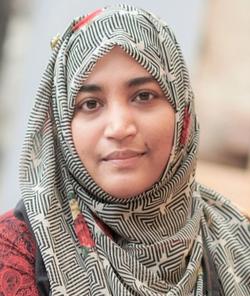
Dr. Tahmina Zebin
Senior Lecturer, Department of Computer Science, Brunel University London
Email: tahmina.zebin@brunel.ac.uk
Dr. Tahmina Zebin is a Senior Lecturer in the Department of Computer Science at Brunel University London and a member of the Intelligent Data Analytics Research Group. Her research expertise spans Explainable and Inclusive AI design, Human Activity recognition, advanced signal processing, medical image analysis, and risk prediction modelling using explainable ML and deep learning approaches. She has experience in analysing and visualizing data from the ELSA, NOAR, UK Biobank, and other large electronic health datasets.In Inflaim, Tahmina will contribute to state-of-the-art prediction model development, biasmitigation in datasets and models,and formulation of AI auditprotocols across intersectional groups.

Dr Daniel Asfaw
Research FellowResearch Fellow in Data Science, School of Computing Sciences, University of East Anglia. Daniel Asfaw's research focuses on developing advanced machine learning methods to analyse large-scale population datasets. His work aims to identify trajectories of multiple long-term conditions throughout the life course and investigate how these conditions are driven by chronic inflammation, nutrition, and malnutrition. Previously, Daniel's research encompassed the application of machine learning and data analytics in healthcare, including the development of predictive models for cardiotocography data to detect rare birth outcomes and the analysis of eye movements data to detect visual field losses.
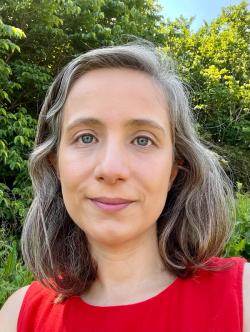
Noura Al-Moubayed
Associate Professor in Computer Science - Evergreen Life LtdNoura has been heavily involved in advancing the field of machine learning (ML) and deep learning (DL), particularly within healthcare contexts. Her focus has been on developing innovative ML and DL solutions aimed at addressing critical challenges in patient care. She leads numerous research projects and a lab of over 15 researchers, working on developing cutting-edge machine learning and deep learning solutions. Over the last seven years of her academic career, she has secured funding for 21 projects from various organisations such as EPSRC, IUK, NIHR, ERDF, and UKRI, totalling over £6 million. Her research has attracted media coverage and has been featured on BBC, ITV, Time Magazine, Wired Magazine, and NewScientist. In 2019, she was recognised among the top 20 women in AI in the UK by RE•WORK.

Dr Benedict Jones
Data Scientist, Evergreen Life LtdDr Benedict Jones works as a Data Scientist for Evergreen Life. His current research and work focus on applying data analytics and machine learning techniques to Electronic Health Records and lifestyle data.
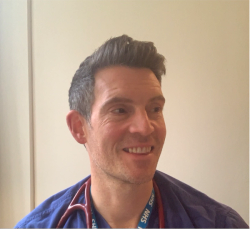
Dr James Harmsworth King
Chief Medical Officer and Director of R&D, Evergreen LifeChief Medical Officer and Director of R&D at Evergreen Life with a track record of delivering AI, digital and big data enabled health technology. He has overseen Evergreen’s growth from a Personal Health record start-up to over one the UK’s fastest growing companies. As of 2024 Evergreen is delivering software and NHS services to over 3M patients in the UK.

Soumya Subhra Paria
Senior Research FellowSoumya is a Research Fellow in Medical Statistics at the London School of Hygiene and Tropical Medicine. His research focuses on developing and implementing advanced statistical methods to investigate the roles of inflammation, nutrition, and intersectionality in multiple long-term conditions. His broader research interests include big data approaches in genetics, such as the development of novel phenotype prediction frameworks for ancient DNA and R packages for efficient GWAS visualisation. Soumya has also worked on cancer survival, studying the role of gene expression in influencing metastasis and survival outcomes.
PPI representatives

Ron Brewer
Patient partner (NNUH)Patient partner. Patient Research Champion for Norfolk and Norwich Hospital
Email: crockslea@aol.com
Patient and public representative. Ron is a patient research champion and volunteer at the Norfolk and Norwich University Hospital (NNUH). Since retiring after 40 years as a research scientist he has participated in short and long term clinical trials at both the NNUH and the UEA. He advises local researchers on their projects from the point of view of a participant

Jane Scarfe
Patient partnerChair THE RiNG, Rheumatoid in Norfolk Group
Email: janescarfe@gmail.com
Jane is a recent Lead Governor at the Norfolk & Norwich University Hospital (NNUH) who has chaired the Norfolk arthritis support group THE RiNG for over 12 years. She is one of the lay consultees on the InflAIM project whose input has focused on prioritising its relevance and significance to patients.
